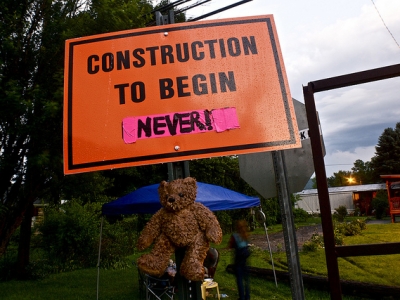 In many countries, once a decision to purchase a property has been made, a deposit paid, the parties should be able to sit back and handover legal matters to their lawyers, and concentrate on admittedly stressful practical matters such as furniture removal, checking boilers / heating / air conditioning systems and often working through a ‘chain’ of interdependent transactions where in some cases each chain involves a buyer loaning monies from a bank.
In many countries, once a decision to purchase a property has been made, a deposit paid, the parties should be able to sit back and handover legal matters to their lawyers, and concentrate on admittedly stressful practical matters such as furniture removal, checking boilers / heating / air conditioning systems and often working through a ‘chain’ of interdependent transactions where in some cases each chain involves a buyer loaning monies from a bank.
Strangely, the same sets of buyers when investing overseas in countries like Thailand, forget or deliberately dispense with the most essential and often sheer common sense oriented checks. Sometimes just to save a few pennies.
Here are 5 of the most commonly overlooked issues:
1. Conducting a Structural and Internal Survey of the Property
Because many foreigners are buying outright with cash, there is often no bank looking over the shoulder of the purchaser insisting on the bare minimum checks. Weirdly, many buyers’ approach to the matter of structural integrity appears to be “if it looks like the building is standing up straight, it must be safe and ok to live in”. It is worth remembering that not every pour of cement is the same, not every pillar has the same number of rods running through, and that even though a building permit has been issued, the construction plans may not have been followed and further, after time, a building can deteriorate – visibly and invisibly. Why not splash out what could be the price of a few cases of overtaxed wine on making sure the ceilings don’t cave in on top of you and your family
2. Checking Legality of the Existence of the Property?
If you see something exists, should your mind then snap shut to the possibility that it should not actually be there at all?
There are many aspects to a property being built and legally existing in Thailand and each one of these should be checked because it should not be assumed that a seller in a re-sale knows of any issues or wishes to disclose them, or in an off-the-plan purchase that the developer has abided by all the rules.
Check the history of the land, the zoning restrictions, building height restrictions, land height from sea level building restrictions, gradient of slope restrictions, compliance with environmental consent, proximity from a beach, proximity from restricted zones such as temples, conformity with building plot ratios – the amount of built up area permitted on a land plot, conformity of the number of rooms in the property as per the building permit, the registration of interests at the land department and whether those Thai records match contracts which may have been signed in English or another language.
Perhaps if a choice exists between buying that super nice super expensive outdoor sofa, chairs and table and paying a law firm to check your prospective property is legal, you could choose the latter.
3. Check you aren’t walking into an ongoing dispute
One of the most common questions asked when someone learns of a breakaway from an existing business is “Was it amicable ?”. People are naturally and keenly interested in whether parties are able to keep matters friendly whilst conducting difficult discussions.
In many properties throughout the globe, there are plentiful wells of legal fees for lawyers dealing with property related disputes. Lawyers, most of the time, cannot be legitimately attributed to having created disagreements. Most people are capable of creating arguments without assistance.
Where there is an owners committee, there is a set of minutes for meetings. Simply by retrieving and looking at a few years worth of minutes, you can get a feel for how an estate is run. There will always be some mad hatters who spend their days trying to make an asset manager’s life as miserable as possible, perhaps believing that their role in life is to scrutinize and hold everyone around them to account in an unpleasant manner. However, there will also be some sensible people, sometimes devoting much of their personal time for free, to overseeing committees and trying to get the property in order which ultimately benefits a group of owners.
Phuket is a small island roughly the same size as Singapore. There is only one main courthouse in Phuket and it can easily be found using googlemaps or simply driving into the centre of Phuket. We do recommend engaging a lawyer to check if you are dealing with has some cases filed against them at court.
4. Defining what you are buying – clearly
Due to the gulf existing between certain agents of low quality, and other agents of high quality, there can be quite disparate and contrasting approaches to the seemingly simple task of creating the ‘particulars’ or ‘description’ of a property. The description of a property by its very nature becomes the subject of a binding sale and purchase agreement which under Thai law is a sale of immoveable property. If the subject is incorrect, then any act arising from the transaction could be jeopordised by misunderstanding and disputes can arise.
Weirdly, many people transacting like to seem ‘amicable’ by making vague friendly references to furniture, fixtures, fittings and equipment such as “let’s deal with that later” “oh it’s ok, I am sure they won’t steal the toaster (wink wink)”. Unfortunately, this can result in metaphorical or actual tears later on. If an agent is involved, surely a furniture list can be drawn up. If the property is being bought and sold with a tenant still in the property, surely the seller knows what was in the property when the tenant took possession.
All in all, ascertain precisely what you are buying.
5. Make sure something is registered and/or legally transferred to you, properly
Many intelligent people got caught up in the Bernie Mahedoff scam because they simply assumed that those before them knew what they were doing. This could be, without wishing to insult lemmings, be coined as ‘Lemmingitis”.
When you buy a property, just because someone says they ‘own it’ doesn’t mean that is the case. Please kindly ensure you check for documents such as – the construction permit, the whereabouts of any land title documents, the constituent parts of any Thai and foreign companies involved, the validity of registers or the ‘company books’, information recorded at the Department of Business Development, and ensure that when any legal interest is transferred such as that in a building, property, leasehold right, condominium title right, and/or shares, that this is handled by competent professionals, who know what they are doing.
Phuket is a beautiful island. It is developing and infrastructure is improving. Property prices are on the whole going to increase over time if history is an indicator of the future. If you intend to be a positive part of this story, take care and enjoy your property hunting.
This article was written by Desmond Hughes and first appeared in Thaiger, 28th July 2018








